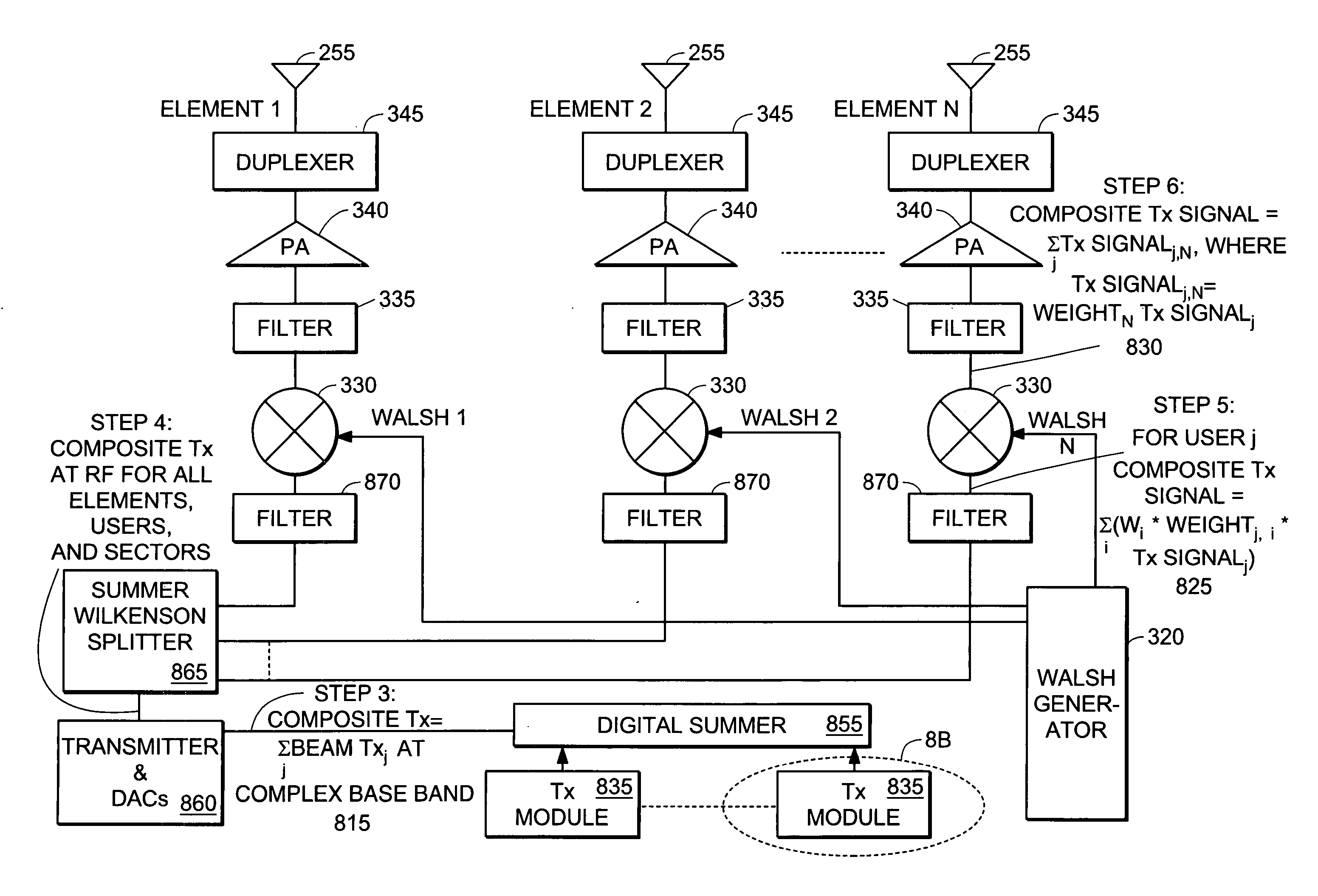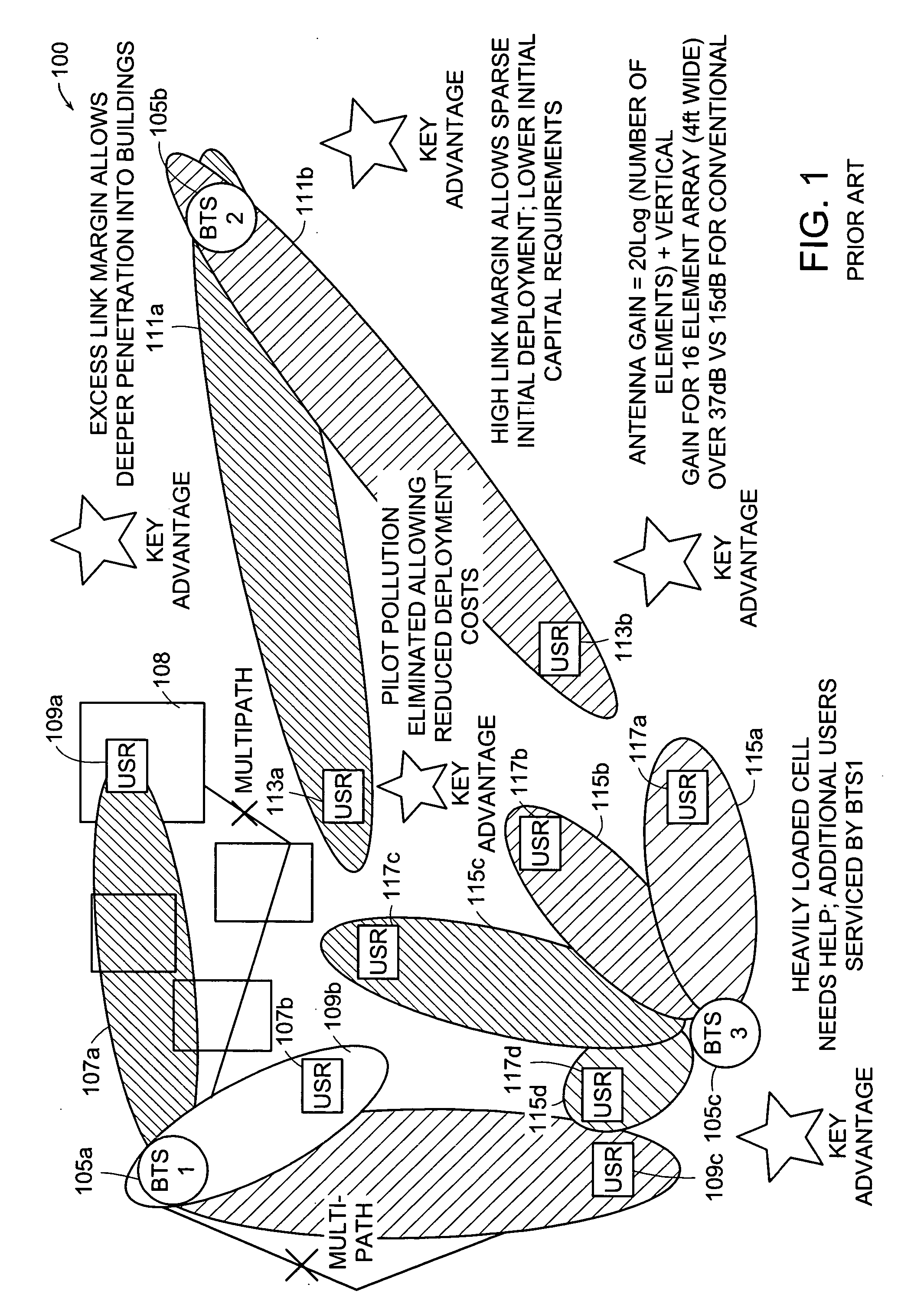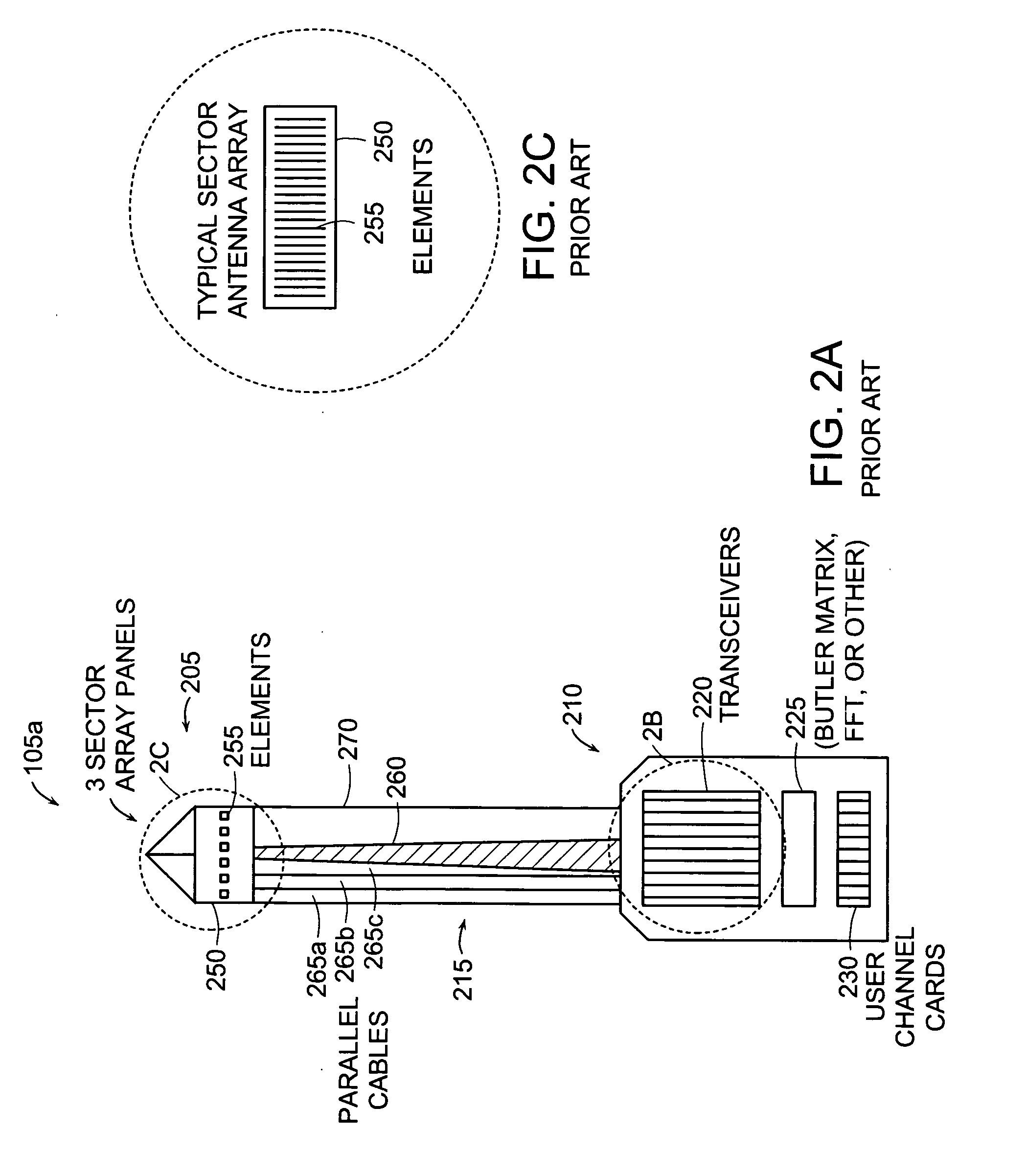Method and system for economical beam forming in a radio communication system
a radio communication system and beam forming technology, applied in the direction of multiplex communication, wireless communication, orthogonal multiplex, etc., can solve the problems of increasing the number of rf transceiver systems required in the base terminal station (bts), adding complexity and cost to the system, and expensive, and the weight and size of rf cabling tends to be significan
- Summary
- Abstract
- Description
- Claims
- Application Information
AI Technical Summary
Benefits of technology
Problems solved by technology
Method used
Image
Examples
Embodiment Construction
[0048] A description of preferred embodiments of the invention follows.
[0049]FIG. 3A is a block diagram of a base transceiver station 300 in which the principles of the present invention are employed. The base transceiver station 300 includes an antenna assembly 302, base electronics 306, and base station tower 313, on which the antenna assembly 302 is supported.
[0050] The antenna assembly 302, in this embodiment, includes three sector antenna arrays 305. The sector antenna arrays 305 include electronics, described later, and elements 255.
[0051] The base electronics 306 include a single transceiver 370 for all elements 205 of the sector antenna arrays 305. Further, the base electronics 306 include channel cards 365 with integrated weighting electronics, obviating separate weighting electronics 225 (FIG. 2A).
[0052] The base station tower 313 include only a single RF cable 265a in this embodiment. In other embodiments, the RF cable 265a is replaced with a fiber optic cable, wire c...
PUM
 Login to View More
Login to View More Abstract
Description
Claims
Application Information
 Login to View More
Login to View More - R&D
- Intellectual Property
- Life Sciences
- Materials
- Tech Scout
- Unparalleled Data Quality
- Higher Quality Content
- 60% Fewer Hallucinations
Browse by: Latest US Patents, China's latest patents, Technical Efficacy Thesaurus, Application Domain, Technology Topic, Popular Technical Reports.
© 2025 PatSnap. All rights reserved.Legal|Privacy policy|Modern Slavery Act Transparency Statement|Sitemap|About US| Contact US: help@patsnap.com



